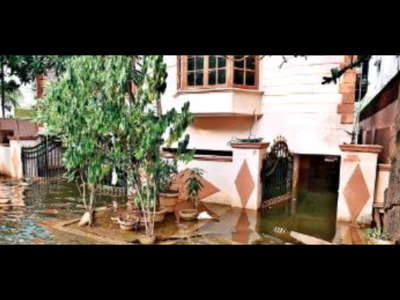The Hindu 07.12.2010
‘Sparrow man’ calls for revamp of urban policies
K. Venkateshwarlu
Sparrows are best bio-indicators of urban life and environment. Death
of these common birds means end of cities sooner or later: Mohd.
Dilawar

Mohammed Dilawar
HYDERABAD: Mohammed Dilawar, the indefatigable saviour of house
sparrows, has called for a revamp of city policies across the country to
focus on conservation of whatever is left of urban bio-diversity.
Glass-clad monstrous concrete inanimate buildings topped by grotesque
cell towers have come to symbolise human-centric urban development
leaving very little space for equally important other forms of life —
trees and birds, Mr. Dilawar, who is one of the Time’s Hero of
Environment 2008 awardees, laments.
He told The Hindu during a visit to the city recently that sparrows
were the best bio-indicators of urban life and environment. Death of
these common birds meant death of cities sooner or later. “When you
cannot spare a perch for these humble creatures that survived hundreds
of years coexisting with man, then something is wrong with you and your
policy.”
Marginalised
Ideally cities should have space for all denominations of people and
all forms of life, only then it could be called vibrant, he emphasised.
“But much like our democracy, where the common man has no say, these
common sparrows too have been marginalised. And they are disappearing
fast. A day is not far off when you will find them on the IUCN red list
of endangered species.”
What are the reasons? Rapid urbanisation, concrete buildings, loss of
trees, use of catapults, packaging of food grains, old kirana shops
giving way to malls and mobile phone towers emitting radiation have all
contributed to the drastic fall in numbers, the ‘sparrow man’ said. A
faulty conservation policy that focuses more on glamorous big cats in
the wild also meant less attention and virtually fund-less campaigns for
other equally important species.
Conservation efforts
Is there hope for stemming the tide and saving the sparrows? “Why
not? We have shown with our nesting boxes that it is indeed possible, to
reverse the trend. Awareness, a little policy intervention of making it
mandatory to provide space in some corner of buildings, planting
hedges, protecting trees, banning catapults as well as use of pesticides
and ensuring availability of grains could do wonders. Mobile phone
towers need to be restricted. We also need to mainstream conservation
efforts and make it more common man-oriented eliminating that elitist
touch,” he says. It was to address this concern, Mr. Dilawar launched
Nature Forever Society that uses multi-media channels including website
for networking bird lovers and building awareness. “Our leaders talk of
‘sadak’, ‘bijli’, ‘pani’ and not of environment. The day we make
environment central to all our policies, we will save cities and save
India.”


